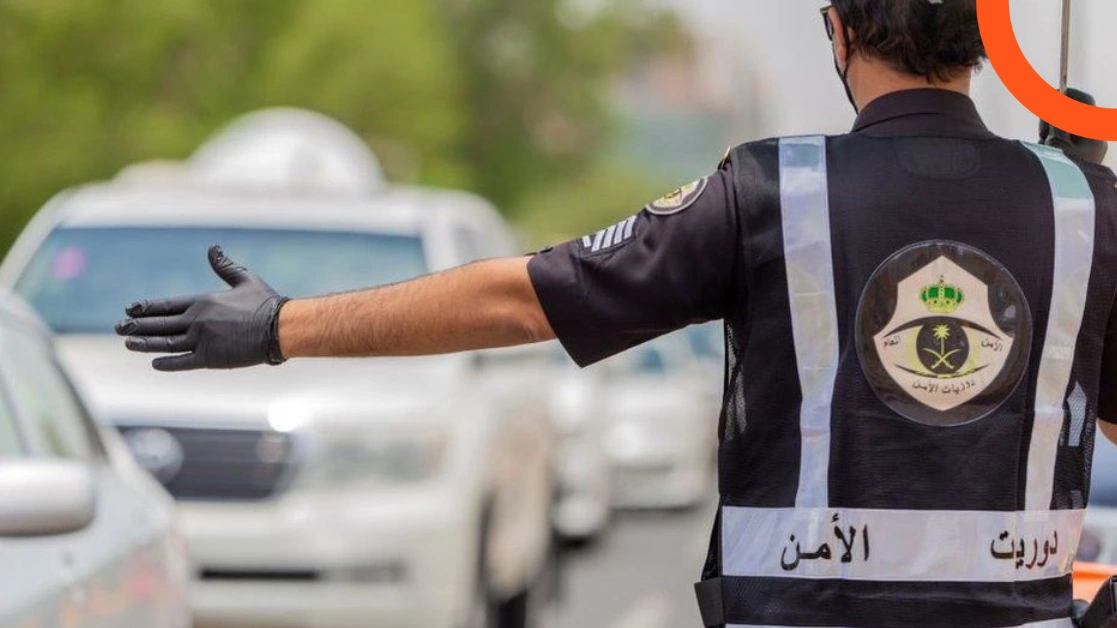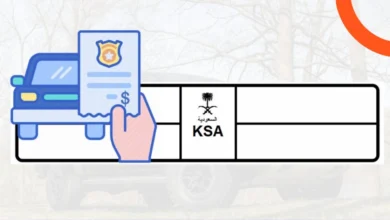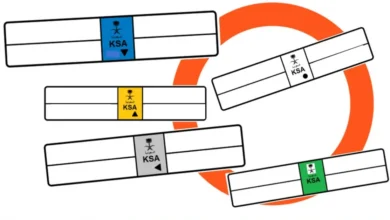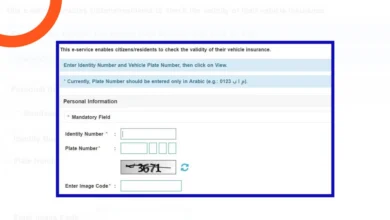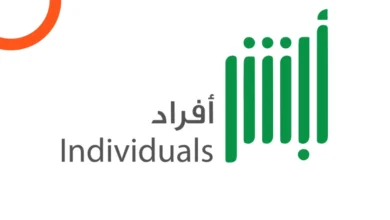Traffic Violations Check in Saudi Arabia – Complete Guide
In Saudi Arabia, staying on top of traffic regulations is key to avoiding violations and ensuring safe driving. The government has made it easier for drivers to check and manage traffic violations through digital platforms like Absher. This guide will explain how to quickly check your traffic fines and stay compliant with the law, also we’ll walk you through the process of disputing violations should you need to challenge a fine. Whether you’re a new driver or a seasoned one, this complete guide will help you navigate the rules and streamline the process of managing traffic violations in Saudi Arabia.
How to Check Traffic Violations Online in Saudi Arabia?
Check Traffic Violations Using Absher
Keeping track of your traffic violations in Saudi Arabia is important to avoid penalties or issues with your vehicle registration. The Absher platform offers a straightforward way for citizens and residents to check any outstanding traffic fines, access all relevant details, and quickly manage your violations.
Here are the steps to check your traffic violations through Absher:
- Access the Ministry of Interior’s Absher portal.
- Enter your national identification number, resident permit (Iqama), and CAPTCHA code.
- Select “E-services,” then choose “Traffic.”
- Click on “Inquire About Traffic Violations.”
- Enter your ID number and CAPTCHA code again.
- The system will display any pending violations, along with their details.
Check Traffic through the National Platform
Follow these steps to view your traffic violations on the National Platform:
- Visit the MOI (Ministry of Interior) website at MOI Saudi.
- Go to the e-Services section on the homepage.
- Select “Traffic Violations” under the e-Services options.
- You will be directed to a page where you can either log in using your Absher account or check your violations
- using your National ID or Iqama number.
- Enter the required information (ID or Iqama) and click on “View Violations”.
- You will see a list of your traffic violations along with relevant details.
Traffic Violation Payment in Saudi Arabia
In Saudi Arabia, paying traffic violations is straightforward with three convenient methods: through the Absher platform, online banking services, or ATMs. Each option ensures that you can quickly and efficiently settle your fines, helping you avoid further penalties and stay compliant with traffic laws.
Through Absher
- Log in to your Absher account by visiting Absher Portal.
- Once logged in, go to the “Services” tab.
- Select “Inquiries” and then click on “Traffic“.
- Choose “Traffic Violations“, and you’ll see a list of your outstanding violations.
- Select the violation(s) you want to pay and click on “Proceed to Payment“.
- You will be directed to a payment gateway. Follow the instructions to complete the payment using your bank card or Sadad account.
Through Bank Apps
- Log in to your online banking account or mobile banking app.
- Go to the SADAD or Government Payments section (this varies by bank).
- Choose the Traffic Violations payment option.
- Enter your National ID or Iqama number.
- The system will show the outstanding traffic fines. Select the one(s) you want to pay.
- Confirm the details and complete the payment using your bank account or credit card.
Through ATM
- Insert your ATM card and enter your PIN.
- Choose the Government Payments or SADAD option.
- Select Traffic Violations.
- Enter your National ID or Iqama number.
- The system will display your unpaid fines. Choose the fine you want to pay and complete the transaction.
Traffic Violation Fines and Penalties in Saudi Arabia
In Saudi Arabia, traffic violations are taken seriously, and the fines and penalties are structured to ensure road safety for all. The Saudi government classifies traffic violations into four distinct categories, each outlining specific fines and penalties based on the severity of the offense. This comprehensive system is designed not only to enforce traffic laws but also to promote responsible driving behavior across the country.
Violations from 500 to 900 riyals
Category I traffic violations in Saudi Arabia involve the most serious breaches of road safety regulations, often resulting in heavy penalties. These violations not only endanger the lives of drivers and pedestrians but can also lead to vehicle impoundment and significant fines ranging from 500 to 900 SAR.
- Driving a vehicle without a driving license.
- Driving a vehicle without plates (vehicle will be kept in custody until the violation is settled).
- Driving a vehicle without a back plate (vehicle will be kept in custody until the violation is settled).
- Using forged registration plates (vehicle will be taken into custody until the violation is removed).
- Using illegal plates (vehicle will be kept in custody until the violation is settled).
- Fixing equipment on the vehicle like those used in official and emergency vehicles (vehicle will be kept in custody until the violation is settled).
- Concealing or attempting to conceal or blur the special features of the vehicle (vehicle will be kept in custody until the violation is settled).
- Driving under the influence of alcohol, drugs, or medicine that impairs driving ability.
- Not stopping at a red traffic light.
- Driving in the opposite direction of traffic.
- Speeding and reckless driving between vehicles on public roads.
- Exceeding the speed limit by more than 25 km/h.
- Overtaking vehicles on curves and uphill roads.
- Stopping on railways.
- Uncovering or untying transported loads.
- Carrying out roadworks without notifying the relevant authorities.
- Failing to stop completely at the stop signal.
- Failing to give priority to vehicles on a main or priority road.
- Violating traffic police hand signals while organizing traffic.
- Driving a vehicle without brakes or necessary equipment (vehicle will be kept in custody until the violation is settled).
- Not using necessary lights at night or in poor weather conditions.
- Driving inside tunnels without lights.
Violations from 300 to 500 riyals
Category II traffic violations in Saudi Arabia consist of offenses that, while less severe than Category I, still pose significant risks to road safety and the environment. These violations often involve improper vehicle modifications, non-compliance with safety regulations, and failure to respect traffic rules. The penalties for Category II violations include fines ranging from 300 to 500 SAR, and in some cases, vehicle impoundment until the violation is addressed.
- Making additional amendments to a vehicle’s body without following proper procedures (vehicle will be kept in custody until the violation is settled).
- Driving public works vehicles (industrial, constructional, or agricultural) on the road without taking proper precautions to avoid negative effects (vehicle will be kept in custody until the violation is settled).
- Driving a vehicle that pollutes the environment on public roads (vehicle will be kept in custody until the violation is settled).
- Exceeding the speed limit by not more than 25 km/h.
- Tampering with traffic-regulating signs.
- Not stopping at checkpoints when there is a checkpoint sign.
- Not complying with traffic regulations at road intersections.
- Using a vehicle for unlicensed purposes.
- Carrying more passengers than allowed by the vehicle’s license.
- Seating passengers in areas not designated for them.
- Refusing to present driver’s or vehicle identification documents when required by authorities.
- Failing to comply with lane markings.
- Leaving objects on public roads that endanger public safety.
- Failing to give movement priority to VIP or emergency vehicles.
- Overtaking school buses when they stop to load or unload passengers.
- Using an expired license.
Violations from 150 to 300 riyals
Category III traffic violations in Saudi Arabia involve offenses that may seem minor but can still significantly affect road safety and traffic flow. These violations range from not wearing seat belts to improper vehicle maintenance, and the penalties include fines between 150 to 300 SAR. Addressing these issues is crucial for promoting safer driving habits and ensuring compliance with traffic regulations.
- Not equipping trailers as required by regulations.
- Not presenting the vehicle for periodic technical inspection.
- Infringing rules by using strong lights.
- Not following precautions required when parking on public roads in emergencies.
- Putting bars inside the vehicle that obstruct the driver’s vision.
- Driving without carrying the driving license or vehicle registration license.
- Leaving the vehicle on a slope without taking necessary precautions.
- Violating rules for driving on roads.
- Failing to preserve the vehicle’s license plates.
- Incomplete transfer of vehicle ownership .
- Incomplete vehicle use domain.
- Not wearing seat belts.
- Not using safety seats meant for children.
- Defying priority rules.
- Exceeding time limits for exporting a vehicle prepared for export.
- Using a cell phone while driving.
- Misusing the vehicle’s horn.
- Not wearing a helmet while riding a motorbike.
- Driving in lanes not intended for driving.
- Allowing animals to stray onto the road.
Violations from 100 to 150 riyals
Category IV traffic violations in Saudi Arabia cover a range of relatively minor infractions, many of which involve improper behavior by both drivers and pedestrians. These violations, though not as severe as other categories, can still disrupt traffic flow and affect public safety. The fines for Category IV violations range from 100 to 150 SAR, and adherence to these rules is essential for maintaining order on the roads.
- Using unauthorized devices inside the vehicle or fixing logos or posters contrary to public morals.
- Leaving vehicles on public roads in unauthorized areas unnecessarily.
- Throwing objects outside the vehicle while it is moving.
- Driving a vehicle without front plate numbers.
- Getting off or riding into a vehicle while it is moving.
- Pedestrians crossing roads from places other than those designated for them.
- Pedestrians not complying with signals defined for them.
- Slowing down driving in a way that impedes the smooth flow of traffic.
- Parking in places designated for persons with special needs when not from that category.
- Not focusing on the road while driving.
- Absence of an insurance policy for the vehicle.
Traffic Violations Points System
The Traffic Violations Points System in Saudi Arabia is a structured approach to penalizing drivers for repeated traffic offenses. Accumulating 24 points within one Hijri year can result in progressively severe penalties, from temporary suspensions to the permanent revocation of a driver’s license. This system encourages safer driving and aims to reduce traffic violations across the Kingdom.
- First-time offenders with 24 points in a Hijri year face a 3-month suspension.
- Second-time offenders with 24 points in the same year will have their license suspended for 6 months.
- Third-time offenders face a 1-year suspension.
- After the fourth instance of accumulating 24 points in a Hijri year, the driver’s license is permanently revoked.
Traffic Violation Dispute
The Traffic Violation Dispute Process in Saudi Arabia allows drivers to contest violations recorded by the SAHER system through the Absher platform. This process ensures that drivers can challenge fines within a set timeframe if they believe a mistake has been made. However, there are specific conditions that must be met for a dispute to be accepted.
Traffic Violation Dispute Conditions
- The dispute must be submitted within 30 days from the violation date.
- Only violations registered by the SAHER system can be disputed.
- Paid violations cannot be disputed online and require in-person visits to the General Department of Traffic (GDT).
- Penalties should be paid after submitting the dispute to avoid additional fines.
- The reason for the dispute must be relevant to the violation.
Traffic Violation Dispute Process
- Log in to the Ministry of Interior portal (Absher).
- Select My Services.
- Choose Traffic Services.
- Click on Objection to Traffic Violations.
- Review the recorded violations and select the one you wish to object to.
- Provide the reason for the objection and click Submit an objection to the violation.
- You will receive a text message confirming your submission on your registered phone number.
Tips to Avoid Traffic Violations
Traffic violations in Saudi Arabia are not just about fines and penalties; they also pose serious risks to lives on the road. Every violation, from speeding to running red lights, increases the chances of accidents, which can lead to injuries or fatalities. Road safety is a shared responsibility, and being mindful of traffic regulations is essential to protect yourself, your passengers, and others around you. We will offer practical tips to help you avoid traffic violations, ensuring a safer driving experience for everyone in Saudi Arabia.
- Avoid speeding – Speed is one of the leading causes of road fatalities. Stick to the speed limits set for each road. Speeding reduces the time and distance available to maneuver, increasing the chances of accidents.
- Check both directions twice at intersections – A quick second glance can prevent missing an oncoming vehicle, which might be hidden in your blind spot.
- Don’t rush into an intersection when the light turns green – It’s a good practice to wait for a moment to avoid cars that may run the red light.
- Look in the direction you’re turning at intersections – Before turning right or left, check for pedestrians or vehicles that may cross your path.
- Stay alert and expect mistakes from other drivers – Be prepared for sudden lane changes or other unexpected actions, especially in heavy traffic.
- Know your vehicle’s blind spots – When changing lanes, don’t rely only on mirrors. Physically check your blind spots.
- Beware of large vehicle blind spots – Be cautious when passing large vehicles like buses, as they have larger blind spots.
- Reduce speed in residential areas – Pay attention to children and pets that might unexpectedly enter the road.
- Maintain a safe distance – Leave enough space between you and the car in front to avoid collisions, especially on highways.
- Ensure your vehicle is in good condition – Regularly check your tires, brakes, and other essential systems to maintain safe vehicle performance.
- Follow traffic signs and road markings – Always adhere to road signs to avoid fines and ensure safety.
- Stay in the right lane – Use the left lane only for overtaking or making left turns, and stick to the right when driving normally.
- Stay calm and patient – Avoid aggressive driving or road rage. Patience on the road leads to safer driving.
- Use parking spaces efficiently – Park in designated areas and avoid blocking others.
- Don’t drive when fatigued or under the influence of medication – Get enough rest before long trips to avoid accidents due to drowsiness.
